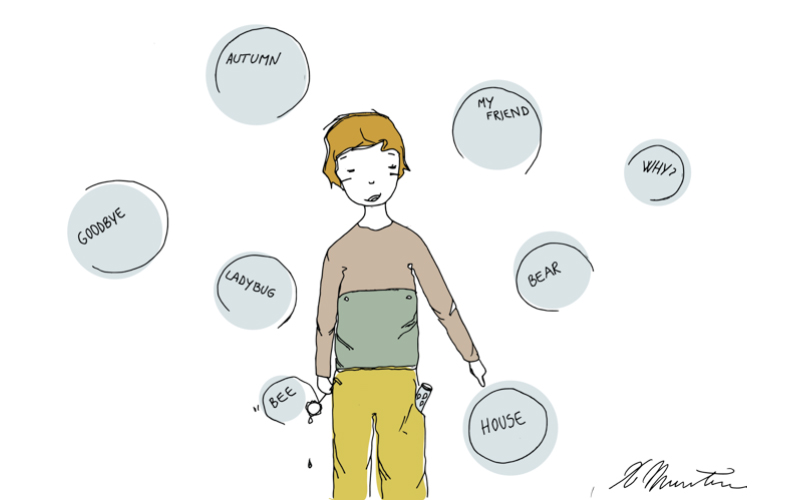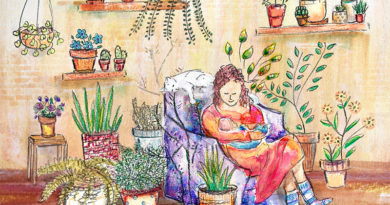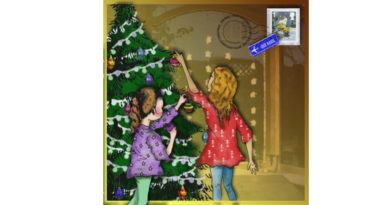Baby Talk

The first smile, the first tooth, the first step – these are just a few of the wonderful moments parents look forward to. Your child’s first spoken word is another special time.
Babies learn to understand what you are saying long before they speak. Ahead of using “proper” words, babies are already busy using their voices to communicate.
Many online guides list the different stages of speech and language development a child goes through. These act as a broad guideline to help you see if your child is progressing or if there could be a delay in her speech and language development.
Each child develops at its own rate. Many children speak words and sentences earlier than the ages listed in guidelines. Other children speak later. A child who has already spoken several words before her first birthday is not more intelligent than a late-speaking child.
When something’s not right
It is often your own instinct as a parent or carer that detects when something is not right with your child’s speech or language development. In Switzerland, there are seven routine reviews of a child’s development between birth and the age of 24 months. Speech and language development is usually reviewed by your child’s paediatrician at the 18-month check up and the 24-month check up but then is not checked again until the four/four-and-a-half year review. Don’t wait for a routine child development check to bring up language concerns with your child’s paediatrician.
Speech and language problems are better dealt with sooner rather than later. This is because each step of brain development in speech, language, and communication skills affects how the next step will develop. Looking out for issues early provides a child with: better support to learn and understand language; a decrease in frustration caused by not being able to communicate; better socialisation with others; and an all-round improvement in all communication abilities (not just spoken communication).
When should you be concerned?
The following are important indicators that a child needs prompt assessment by his paediatrician:
- not making any voice sounds by 3 months
- not making a mixture of different babbling sounds by 12 months
- not using words at all at 18 months
- not trying to join two words together by 2 to 2 ½
Other things that are of concern include:
- child not using other ways to communicate (such as waving, clapping, pointing)
- child not appearing to understand you or not responding to what you say
- child losing words she had already been using
- child starting to make sounds/use words but then failing to progress and continue to add new sounds/words
- child’s talking ability is good but then gets worse
Is your child within the “normal” range?
Some stages of a child’s development should happen within a narrow time frame, such as a baby smiling (which usually happens between the ages of six and eight weeks). Speech and language development happens over a much longer time period.
Some children (around the age of two and a half years, for example) may have very few words but fully understand what is being said around them. They are able to communicate well with gestures rather than words, and easily respond to instructions. These children do not have “delayed” speech and language, and they are likely to develop “normal” talking if given more time.
Although speech and language may come later in some families, you should not expect or accept this as the most likely reason if your child appears to have problems with talking.
Delayed talking in a child can be due to a number of causes. It can be part of a general slower development in other areas too (such as walking). It could be related to a mild learning disability or to an autism spectrum disorder. It might be because of hearing problems (a hearing test is an essential test that all children with possible speech and language problems need to have done promptly). Or there could be problems with the mouth, lips, tongue or jaw.
The most important thing is your child’s general communication ability. The number of words he speaks or the age when he says his first words are less important. If your baby or toddler does not appear to understand the language around her, does not seem to be listening, is unable to use any non-verbal ways of communicating, and is unable to respond to simple instructions, then this should ring alarm bells.
Children exposed to two languages
Children who are exposed to two (or sometimes more) different languages consistently from a young age should have no problems mastering both languages equally. Their pronunciation, range of words, and sentence structure will be the same as a similar-aged child using only one of these languages. These children can sometimes seem delayed in their speech and language development, but when you consider the total range of words the child uses in both languages, and how well they understand both languages, then being bilingual is not normally a reason for delay.
Confusion between a first and second language is common and does not indicate a speech or language delay. It is common to switch languages mid-sentence, or use words in the wrong order, or substitute a single word in a sentence for a word from the other language. Assuming both languages continue to have a strong presence in the child’s life, these problems will get better naturally, with time.
What are your experiences with your own child(ren) learning French, German, Swiss German, or Italian (or any other language) while living in Switzerland?
Simplified Guide to Steps a Child Takes in Learning To Talk
| By 6 months | In the first few months of life, babies start using noises that are almost vowel-like in sound such as “ah” and “eh.” A baby also turns its head to noises and voices, smiles in response to your smile, and likes looking at your face while you are talking. |
| By 9 months | Your baby’s sounds are now much more defined. Babies often repeat a single sound several times very vocally, such as “ba ba ba ba ba.” Babies make a lot of babbling and cooing sounds at this age, indicating that they are well on the way to speaking. |
| By 12 months | Your baby’s babbling is frequent and makes tuneful patterns that sound almost like proper little sentences. She may be using “dada” and “mama” sounds too. Some babies are also starting to use one or two other words. Understanding is much better. Babies at this age also enjoy using non-spoken ways of communication such as head shaking. |
| From 12-18 months | Your baby’s understanding of words has increased a lot. 12 months or so is the age at which a baby speaks its first word (and has clear understanding of what that word means). Even if not using words, a baby should be communicating with you with gestures.By around 18 months old, many babies use around 20 words. |
| Between 2 and 2 ½ years | Babies use around 50 words at this age, and two-word combinations are more frequent such as “more juice,” and “all gone.” |
| Between 2 ½ and 3 years | Short sentences of three words or more are developing. By 3, far more words being spoken than you can keep track of. |
Useful Online Resources
- This link from the American Speech-Language-Hearing Association has some good pointers about preschool children in the “Consumer Information” section towards the bottom of the page.
- Another link from the American Speech-Language-Hearing Association has pointers about school-age children in the “Consumer Information” section at the bottom of the page.
- Talking Point is an information-packed website from the U.K. all about children’s speech, language and communication. This link gives you useful factsheets.
- Talking Point also has a Progress Checker where you can check your own child’s language-development stage.
- Plenty of details about speech and language development in children on this excellent Swiss site (only in German) by two experienced speech therapists.
- This canton of Zurich site lists some speech therapists who are able to use English as a therapy language. (Site is in German; scroll down list to find therapists who list Englisch as one of their Therapiesprachen.)
By Dr. Jahura Hossain
Born and brought up in London, Jahura is a U.K.-qualified doctor. She has worked in hospitals, general practice, public health, prison medicine, and the pharmaceutical industry.
© Copyright. Jahura Hossain. 2015. All rights reserved. No part of this article may be reproduced without the express consent of the author.
Illustration by Laura Munteanu
Laura has studied Journalism and Advertising, and has been working as a journalist and an illustrator. She has been illustrating for magazines, websites, charity and diverse campaigns. She lives in Zurich with her husband and six-year-old daughter.



